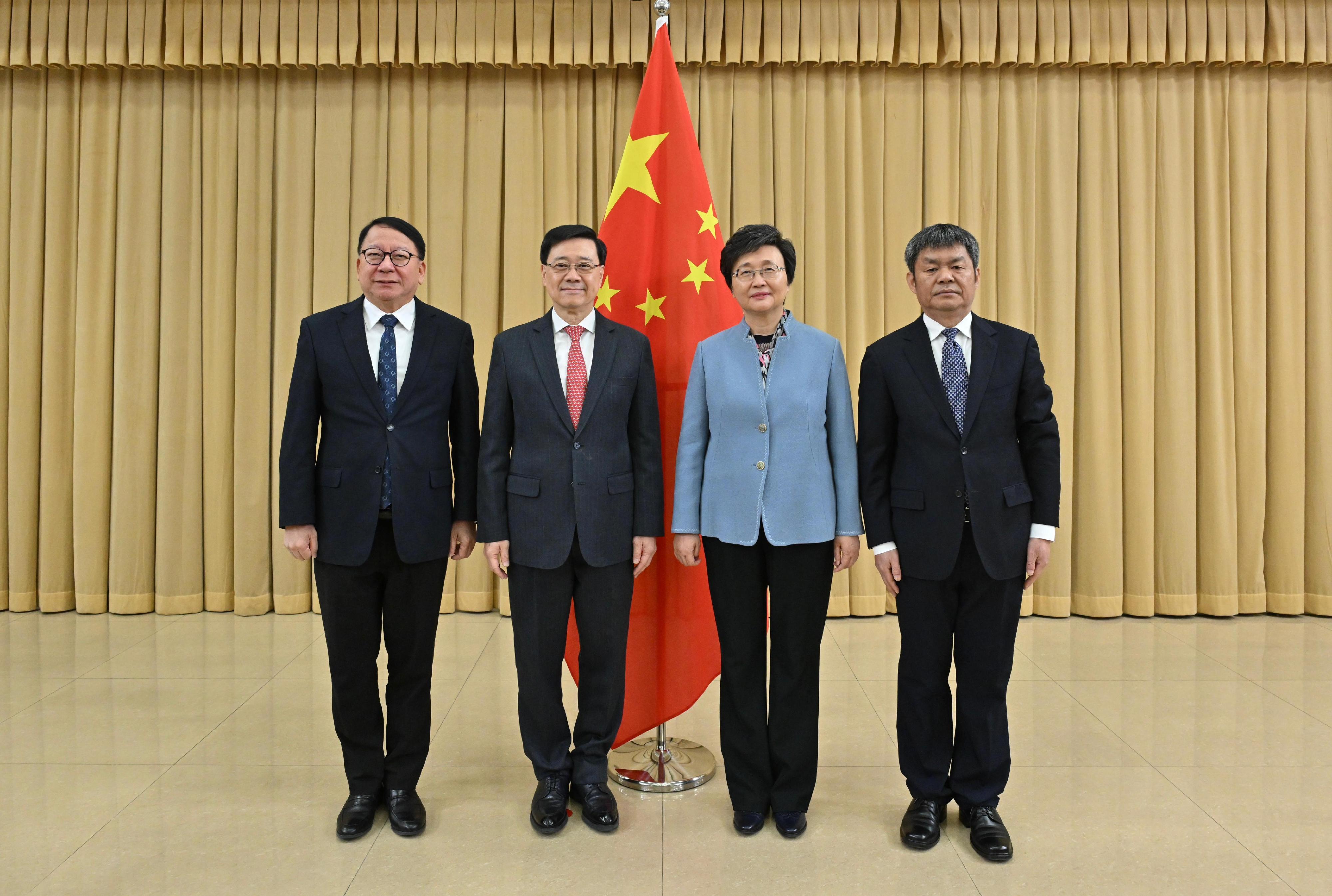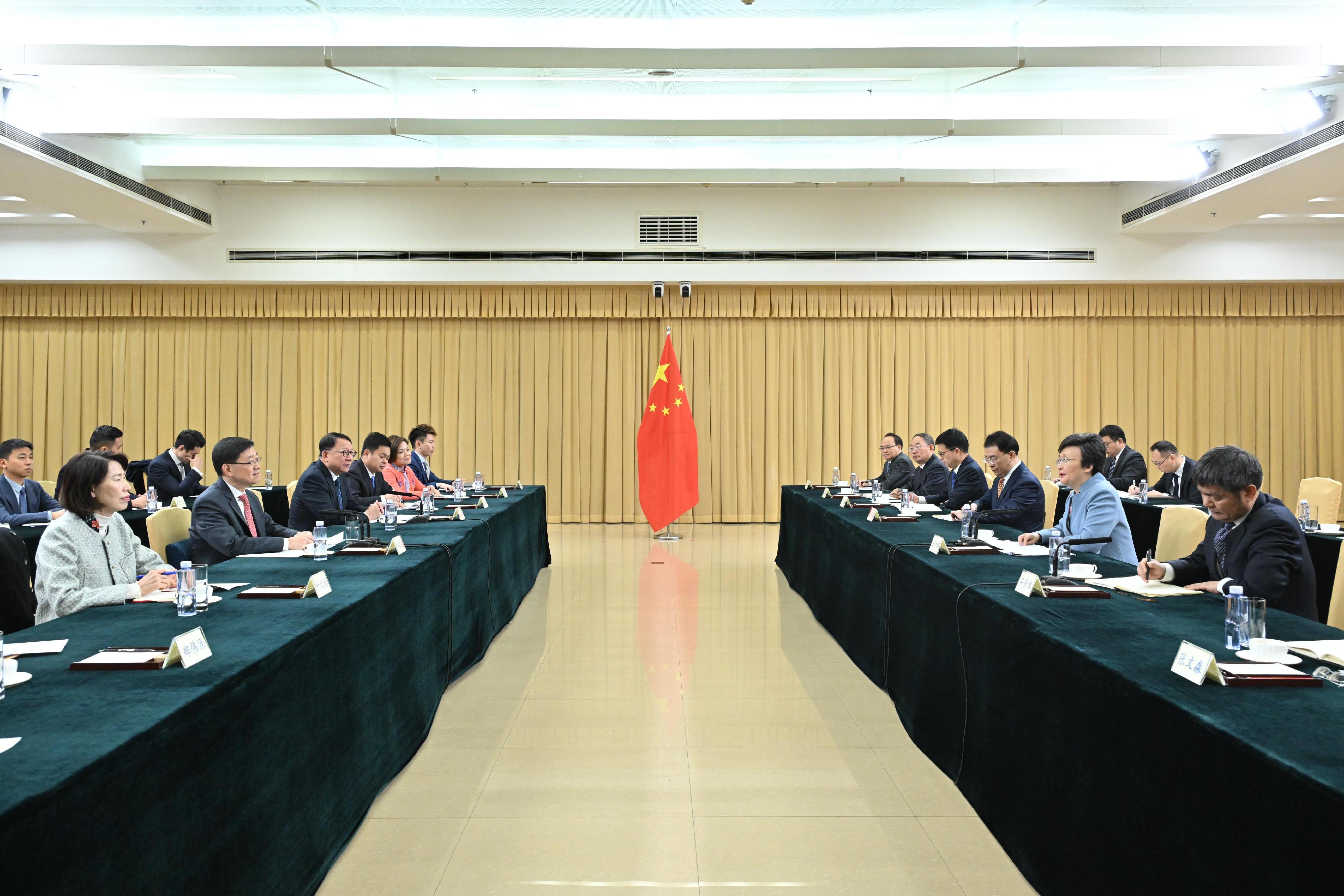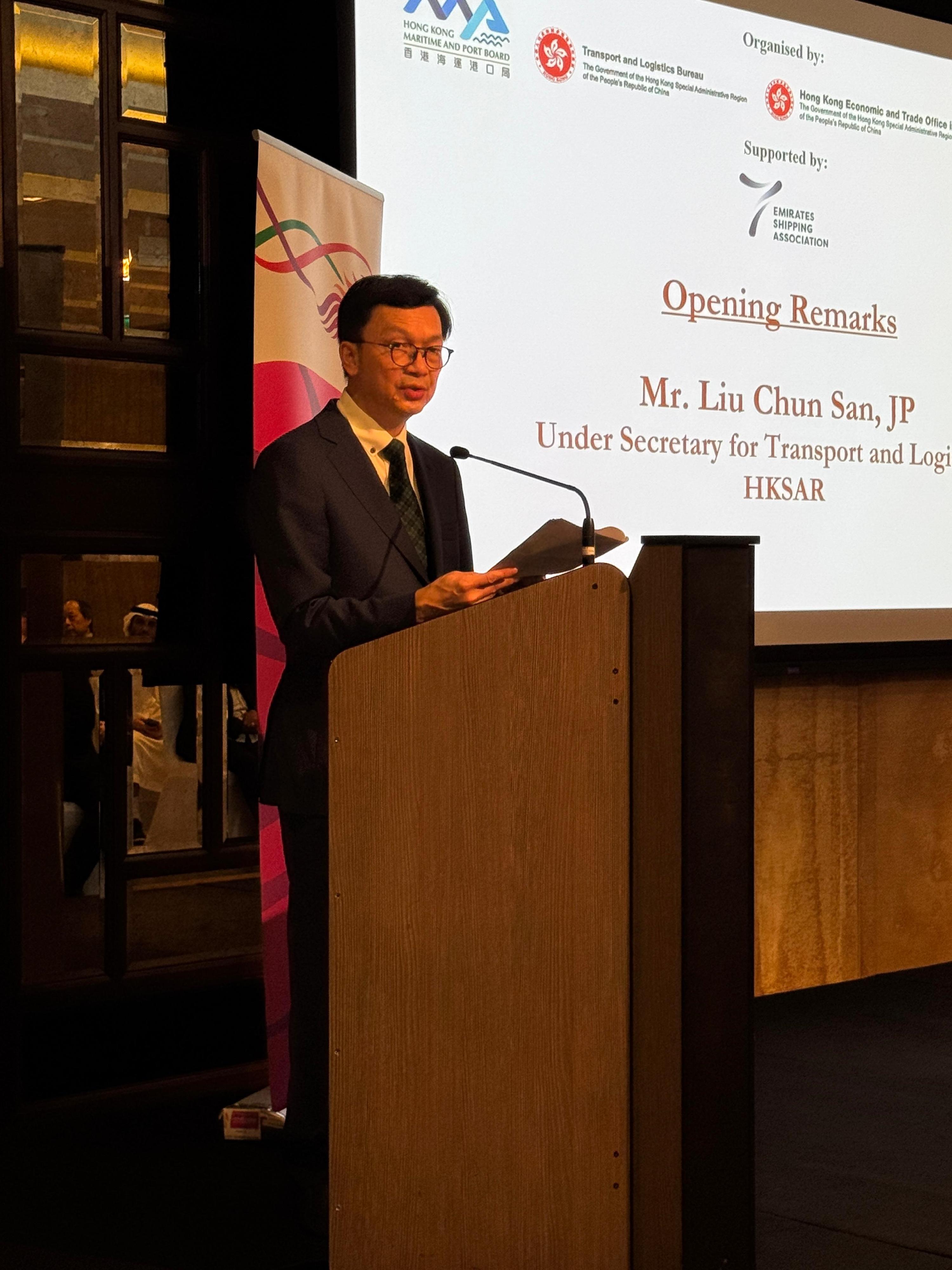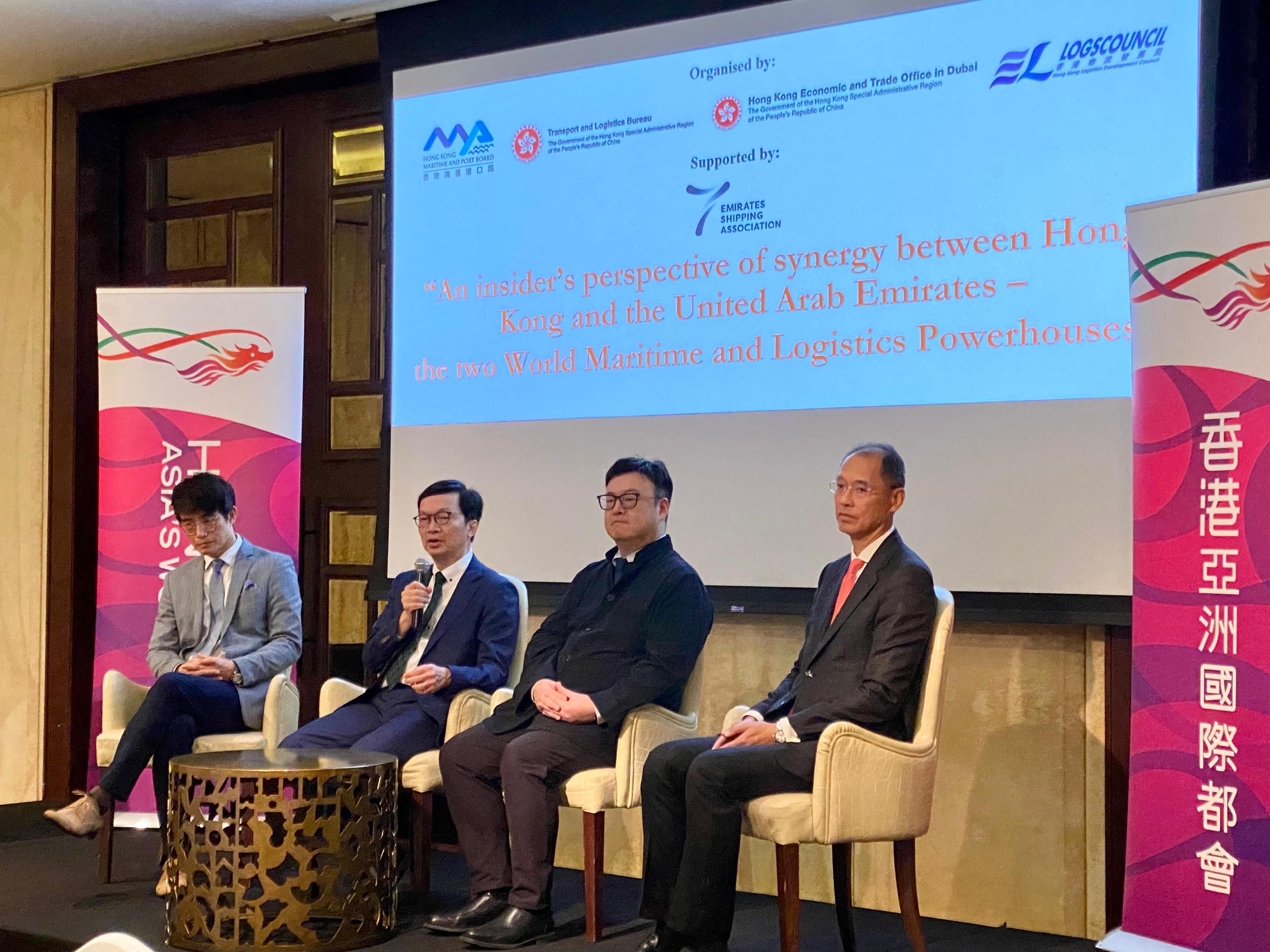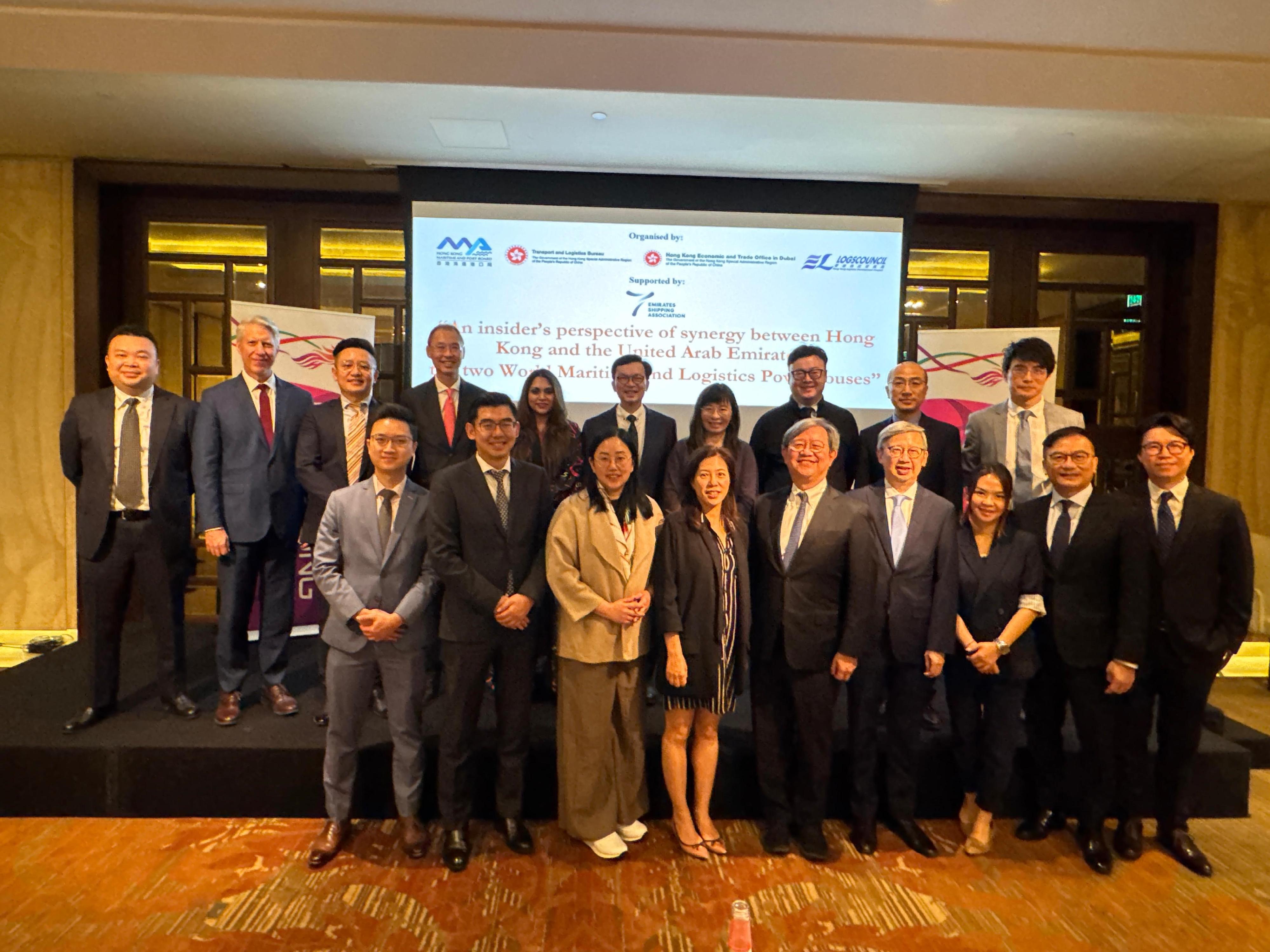CE concludes visit to Beijing (with photos/video)
The Chief Executive, Mr John Lee, met with the Minister of Human Resources and Social Security, Ms Wang Xiaoping, in Beijing today (December 14) to exchange views on issues including the integrated development of education, scientific and technological innovation, and talent cultivation, and building Hong Kong into an international hub for high-calibre talent. The Chief Secretary for Administration, Mr Chan Kwok-ki, who is also the Chairman of the Committee on Education, Technology and Talents (the Committee), and the Director of the Chief Executive's Office, Ms Carol Yip, also attended the meeting.
Mr Lee announced in his 2024 Policy Address the establishment of the Committee on Education, Technology and Talents. Chaired by the Chief Secretary for Administration, the Committee is tasked with co-ordinating and promoting the integrated development of education, technology and talent, and attracting high-calibre talent from around the world to Hong Kong.
He introduced to Ms Wang the concept and background of establishing the Committee is originated from President Xi’s important speech at the National Conference on Education this year. President Xi Jinping pointed out that education development, scientific and technological innovation, and talent cultivation should be promoted as an integrated effort.
The Chief Secretary for Administration reported in the meeting the work directions of the Committee that it will leverage Hong Kong's strategic positioning and advantages of its "eight centres" of development under the support of the National 14th Five-Year Plan to promote the co-ordinated development in technological innovation, industrial innovation, and the supply and demand of human resources.
Mr Lee highlighted that the Hong Kong Special Administrative Region (HKSAR) Government not only attached great importance to nurturing local talent, but also actively attracts diverse talent to work and settle in Hong Kong. Since the HKSAR Government launched various enhanced talent admission schemes in end-2022, over 260 000 applications have been approved, and over 170 000 talented individuals have arrived in Hong Kong as at the end of last month, enriching Hong Kong's talent pool. He expressed his sincere gratitude to the Ministry of Human Resources and Social Security for its continuous support to the HKSAR Government. He said he hopes that the HKSAR Government can create joint forces with the Ministry in serving the country’s workforce development strategy and make greater contributions to building a great country in all respects through Chinese modernisation.
During his visit to Beijing, Mr Lee earlier met with members of the Hong Kong Chamber of Commerce in China (HKCCC) and representatives from higher education institutions in Beijing.
​In his meeting with members of the HKCCC, Mr Lee noted that the Chamber, established over 30 years ago, has been uniting Hong Kong people and enterprises on the Mainland and promoting co-operation between Beijing and Hong Kong in such areas as trade, culture, youth, and innovation and technology. He expressed hope that the Chamber will continue to utilise its extensive network to promote Hong Kong's business advantages and latest development opportunities in Beijing and other provinces and cities on the Mainland, fostering the integration and exchange between Beijing and Hong Kong.
​Mr Lee also met with representatives from Renmin University of China, Peking University, Tsinghua University, Beihang University, Beijing Institute of Technology and Beijing Normal University to understand the participation of graduates from the six institutions in the Top Talent Pass Scheme, as well as academic development for Hong Kong students studying in these institutions. He said that the HKSAR Government will continue to strengthen co-operation with different institutions to jointly build a talent hub.
Mr Lee departed for Hong Kong this afternoon.

